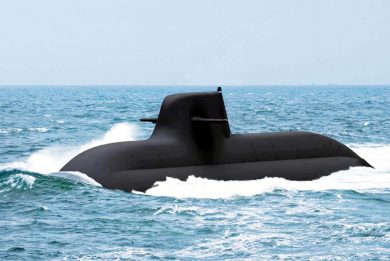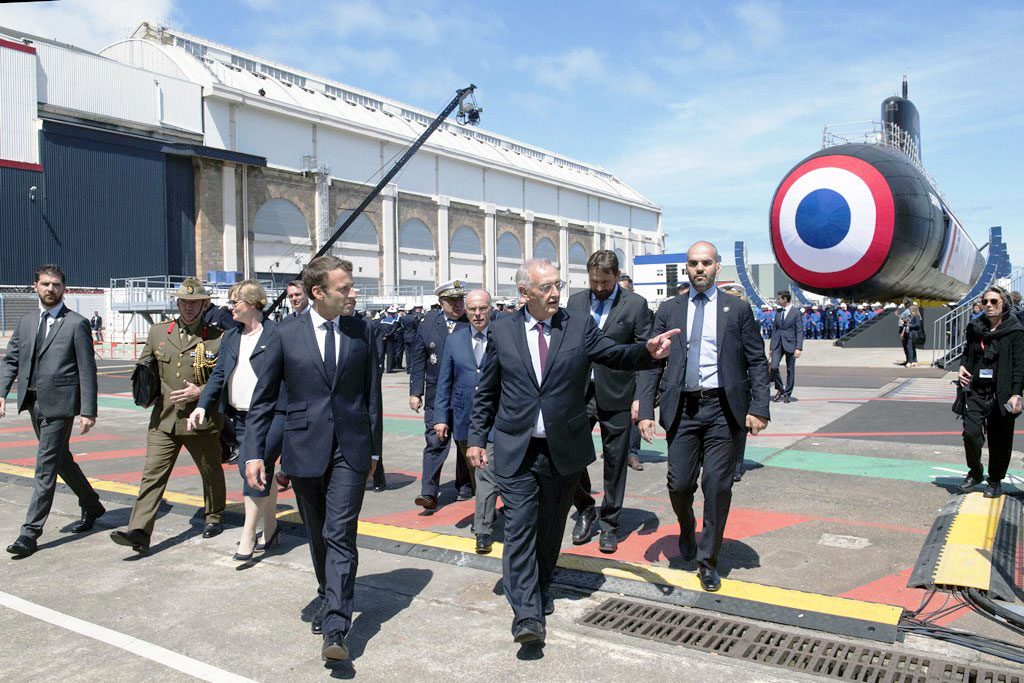
Naval Group: the international market and European industrial consolidation
The Naval Group record level of orders intake in 2019, € 5.3 billion vs € 3.6 billion in 2018 with a 44% increment, was supported by the strengthening of the French group’s competitiveness and the strong development of the international footprint in the last five-plus years, the Group’s Chairman and CEO Hervé Guillou remarked during the 2019 results press conference in Paris last Friday.
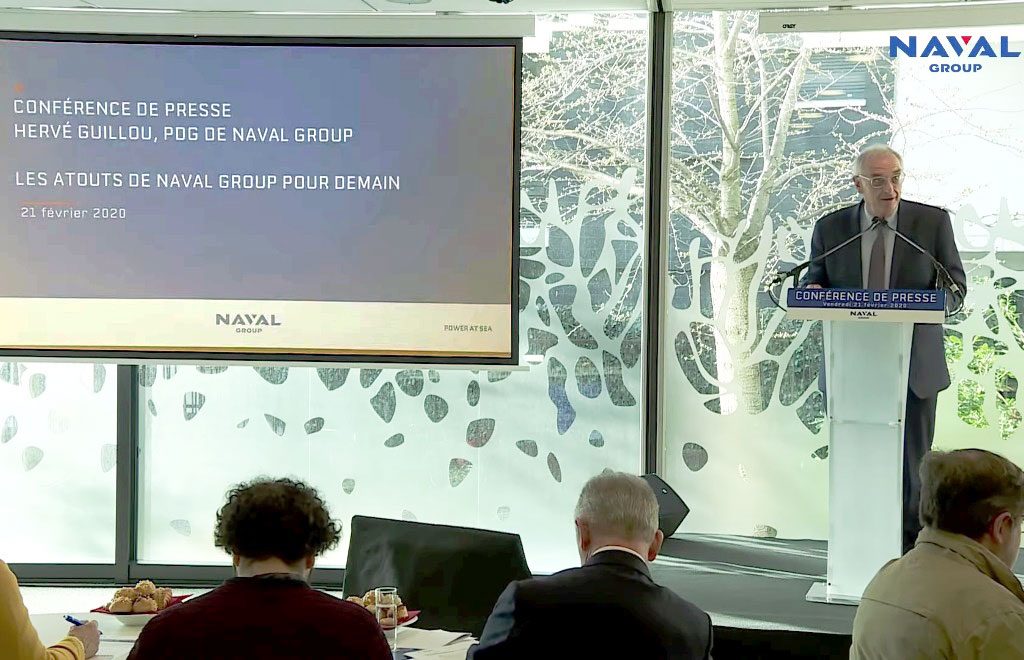
The future sees the initial commercial developments of the Naviris joint-venture between Italy’s Fincantieri and the French Group on the surface ship segment as the first step towards the industrial consolidation in Europe, “the only way the industry of the Old Continent could deal with the same sector’s big competitors at worldwide level”, said the head of Naval Group. The latter will leave the company next March after having been appointed as CEO in July 2014 and an international career outside the company, in which he got his first job in 1978.
The growth on the international market, together with the mastering of programmes and stronger competitiveness of the Group at national and international levels, was among the five main goals which were given by French Government when the current Naval Group CEO was appointed in 2014, the other being the restoration of profitability and the capability to finance the company future growth, the mastering of diversification, and the social dialogue and cultural transformation of the company “into a true leading European group and world leader in a number of its production lines”, he said.
The achievement of these goals, and among them the support of the international market and footprint, to Naval Group record result of 2019, is evident since the first glance to the numbers and figures of the 2019 results that were approved by the Naval Group’s Board of Directors on 20 February. The order intake figure is strongly dominated by the € 3 billion coming from the international market, which also influences the € 15 billion order book of which 38% comes from abroad. It also supported the growth in sales to € 3,7 billion, the EBITA to € 282 million and the operational profitability from 7,4% in 2018 to 7,9% in 2019.
Elaborating these figures, Frank Le Rebeller, Naval Group’s SVP finance, legal, purchasing and real estate, highlighted the support of the 12 MCM vessels contract for Belgium and the Netherlands, and the securing of the two corvettes contract for ‘a Middle East country’. On the national side, the important contract notification of the sixth Barracuda and the additional tranche of in service support for the French Navy SSN and SSBN fleet.
Elaborating on the strengthening of Naval Group international presence, “in addition to the € 3 billion coming from export contracts, the most important [achievement] of all this is that in the 2014-2019 period we landed in seven new countries”, the Naval Group CEO said. In addition to the five historical export and partnership markets that include Brazil, India, Malaysia and Saudi Arabia and at a smaller extant Chile, Naval Group has grown its presence in Argentina, Romania, Belgium and the Netherlands, the UAE, Australia and Egypt. “This is a great news for the future, because in our business normally when we get a new customer we are there for a long time. We still have to develop this presence, not only through technology transfer and by selling our products, but through the establishment of a lasting international presence, and that’s what is part of our current roadmap”, he explained.
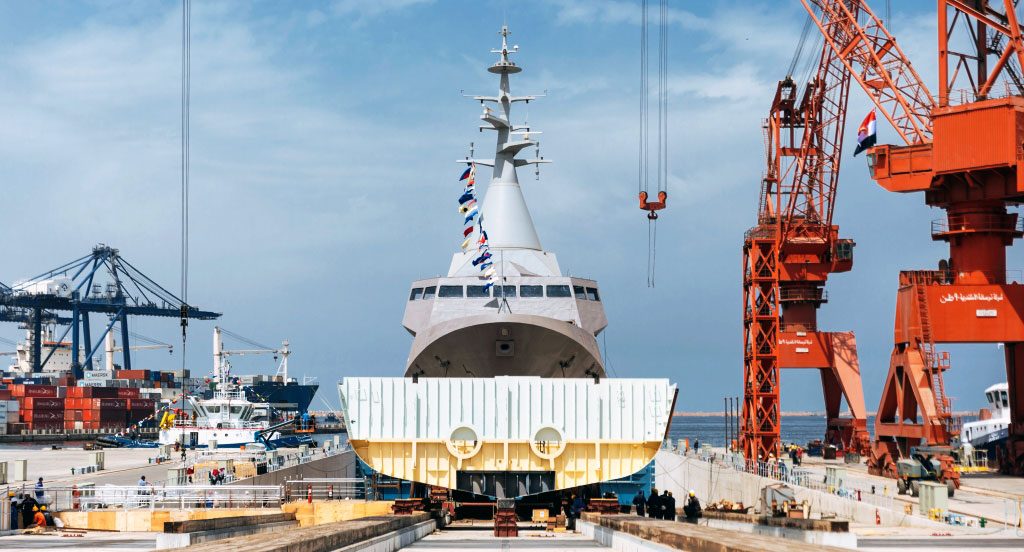
Among the new and historical market achievements, the Naval Group CEO highlighted the Egypt contract for four corvettes, and the extremely fast delivery contract for one FREMM in addition to the two BPCs (Bâtiment de Projection et de Commandment, projection and command vessels) and the on-going activities to build the corvettes in Egypt together with the maintenance contract signed in 2019 with the Egyptian Navy and unveiled at the press conference. As anticipated, he also acknowledged the two Gowind corvettes shipbuilding programme for a Middle East region country, which the Naval Group CEO indirectly identified during the press conference as the UAE. In the Asia-Pacific region he highlighted the contract for 12 conventional submarines “which has completely transformed our image at worldwide level, winning against extremely talented competitors”.
He continued with the Indian programme for the delivery, under technological transfer and local construction, of the fleet of six Scorpène submarines, of which the first two are operational. Although no details were released during the press conference, the Indian MoD has shortlisted Naval Group as one of the international contenders with local shipyards for the 75I programme regarding six additional AIP-equipped submarines together with other foreign competitors.
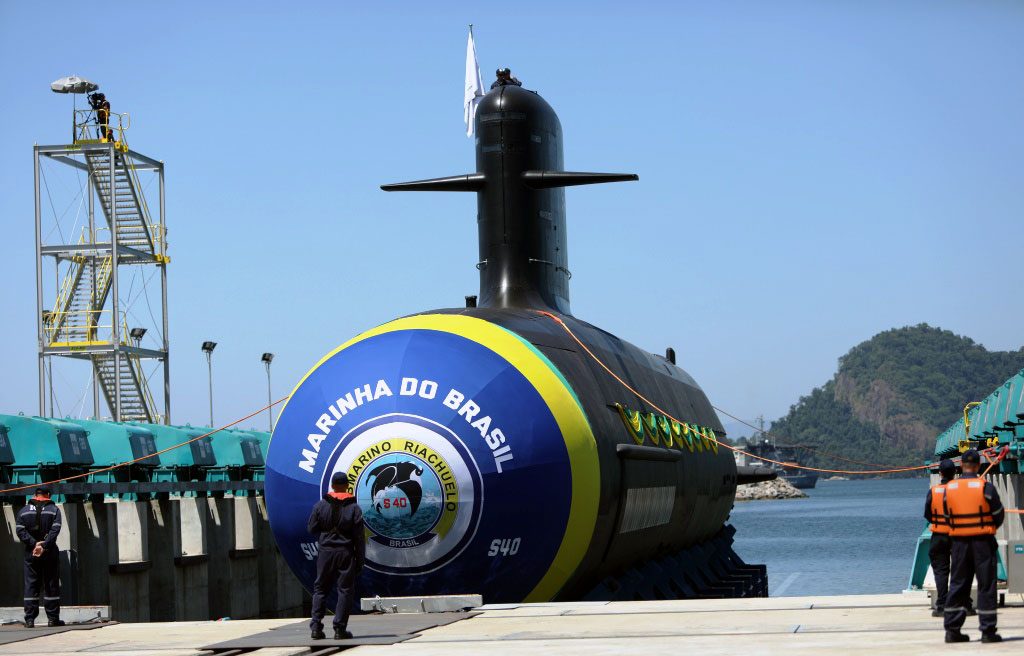
In the Latin America region, Naval Group is involved in the shipbuilding programme with technological transfer and local involvement for the delivery of four Scorpène submarines, the first of which is conducting sea trials, and in the locally developed first nuclear submarine for Brazilian Navy.
“Our goal is to grow further the international order book”, said Frank Le Rebeller, highlighting that it doesn’t reflect the contracts potential. “The Australian contract is not in the mentioned order book. In 2019 (we included only) an order intake of around 400 million euros that simply represents the first design phase, as the Australian contract will be notified tranche by tranche”, he added, breaking down the order book between 74% of new constructions and the remaining of naval service and other defense-related activities.
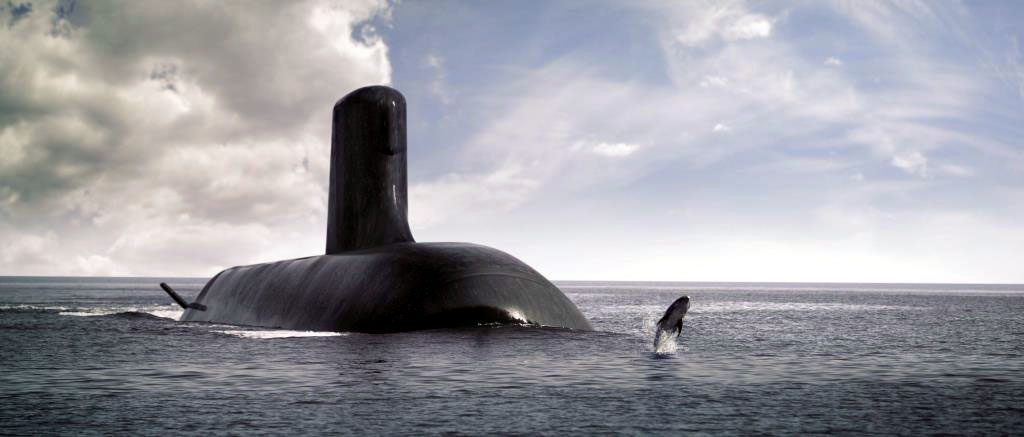
The knowledge and know-how developed for the French MoD naval programmes have a significant impact on the group capabilities on the international market, as well as on the distribution of sales in 2019, with 71% coming from the French MoD. “The Mid-Life Upgrade programme of the Charles de Gaulle nuclear aircraft carrier, demonstrated the strength of our Group it was completed in less than half the best time ever employed by the US and even less than a third of the costs that have been observed in the US. This programme demonstrated the strength of our integrated model, both in terms of project management but also in terms of the multiplicity of skills to which every Group site contributed”, the Naval Group CEO said.
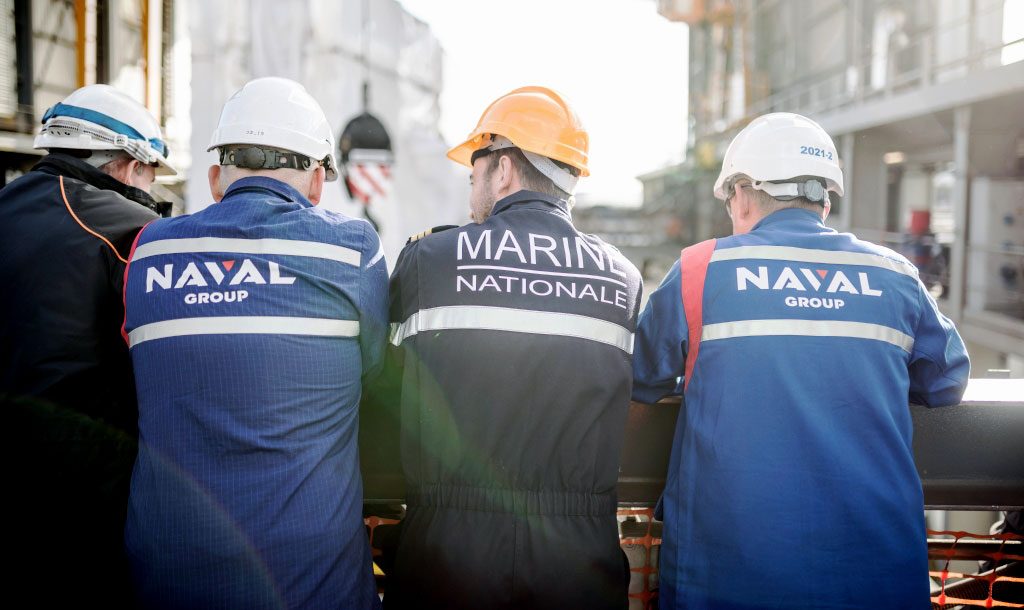
He also highlighted the Barracuda SSN programme, with the launch of the first-of-class platform last July attended by the French President and by foreign customers, namely the Australian Minister of Defence, but also by all the industrial partners “who contributed to this great success which has mobilized more than 4 million work hours”. He acknowledged the first-of-class submarine will begin sea trials in a few days, and will accomplish his trip to Toulon next spring for the subsequent sea trials and acceptance activities with the French Navy.
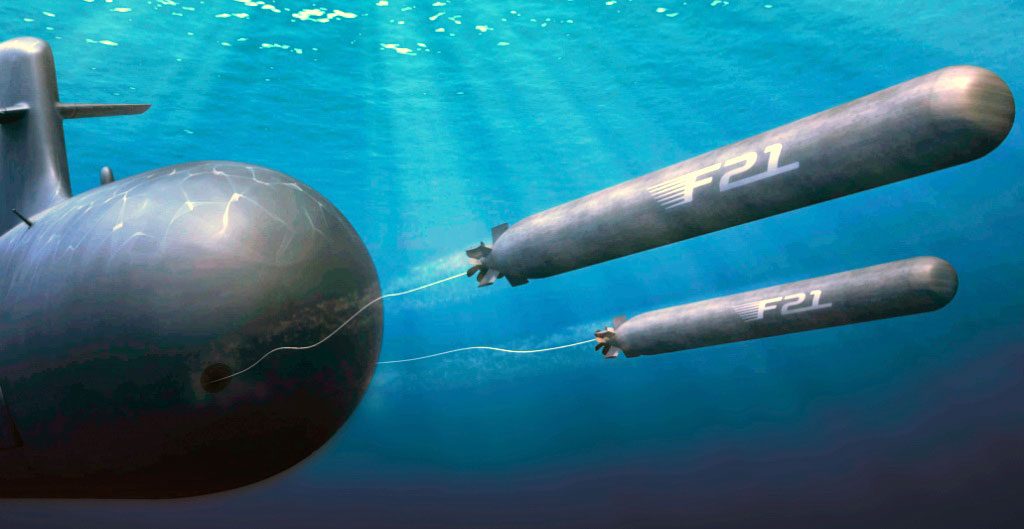
The Naval Group representatives also unveiled the delivery at the end of November of the first batch of F21 torpedoes “with complete satisfaction” not only to the French Navy for her SSNs and SSBNs but also to Brazilian Navy’s Scorpène, after a protracted and complicated development process. The new torpedo “is a ‘game changer’ with considerably higher performance compared to everything that exists today in the world in the heavy-weight torpedo sector”, the head of the Group claimed.
In addition to the FREMM frigates, the CEO highlighted the achievements of digital design since its inception with the FDI (Frégates de Défense et d’Intervention) platform for the French Navy, which was developed for the international market in mind. On October 2019, Greece and France signed a Letter of Intent for the procurement of two Belharra/FDI frigates for the Hellenic Navy. Talking and agreements for partnerships with the Greek industry are ongoing as part of the two governments framework agreement for the acquisition of two frigates “that will be identical to those built for France, with just one complement which is linked to the existence of a naval cruise missile (requirement), a complementary capacity to be scheduled today”, said Alain Guillou, Naval Group Executive Vice-President Development.
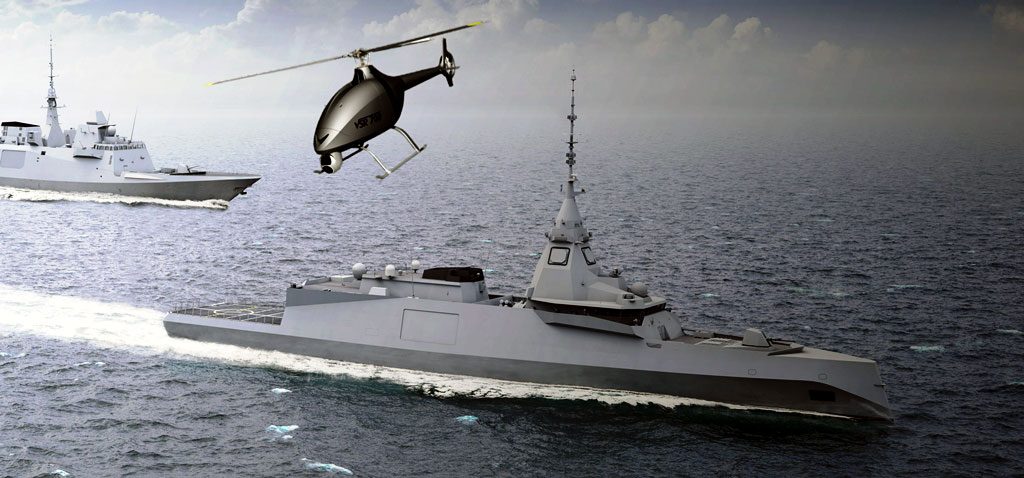
“Discussions continue, and we are hopeful that they will succeed in the next few weeks, one month maximum”, so that Naval Group can start construction alternating one ship for France and one for Greece. Looking to the future, the Naval Group CEO reinstated his clear vision for the consolidation of the European industry as “no European country is able to resist by itself the overseas international competition”, coming from the other shipbuilding giants. Under the strong guidance and willing of current CEO, Naval Group has pursued the goal to join the force with Fincantieri to form the Naviris joint-venture under the two countries framework agreement in the security and defence sector signed in September 2017.
“In the internationalization field, there is obviously the development of Naviris, with probably additional steps to be made in our rapprochement with Fincantieri, hoping to find affinities that will allow other European industrial partners to join us”, he said.
“We as Naviris are ready to get our first orders by late March”, the newly formed JV being expected to start working with the contract to be awarded by France and Italy for the overhaul studies of the Horizon air defence platforms, and for a number of development and research contracts either bilateral or as part of the European framework. “We have now launched four world conquest campaigns in association with our friends from Fincantieri and propose to Europe a project for a European corvette, and you must have noticed that two weeks ago Greece and Spain have decided to join this project. I’m sure that having been the first to take the initiative for this shipbuilding programme, others European countries will follow us. In any case they are obviously welcome”, said the Naval Group CEO.
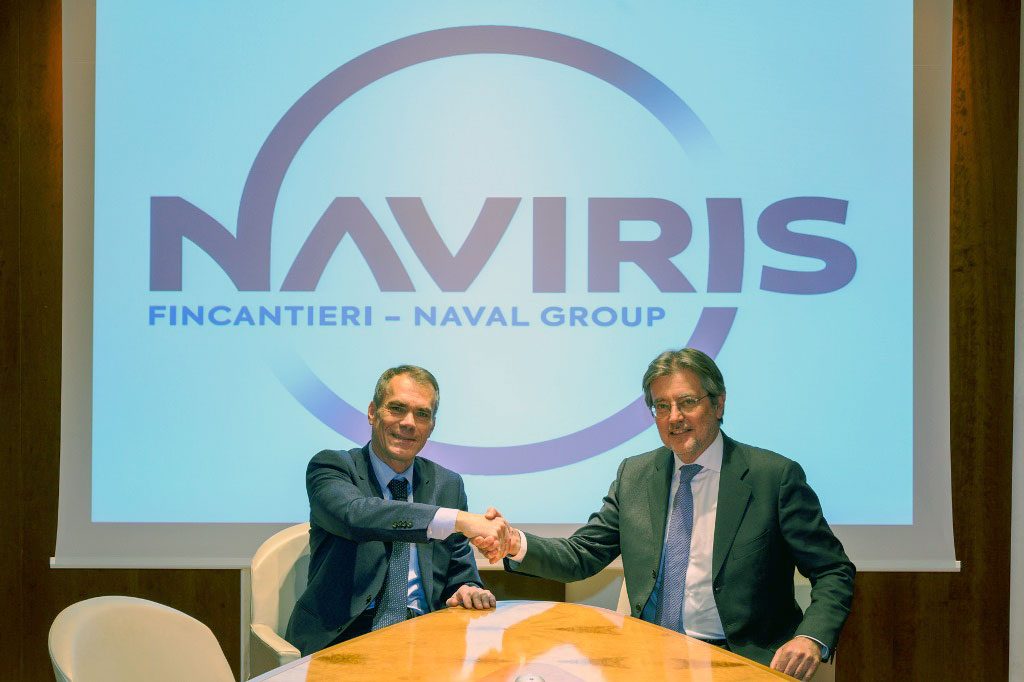
Asked if this joint effort with his friend and CEO of Fincantieri, Giuseppe Bono, is expected to further progress (against the criticism of Thales Group), once he will leave the company by the end of March, Hervé Guillou unveiled that during the Naval Group’s Board of Directors of the previous evening, when the French Government reiterated the proposition of Pierre Eric Pommelet as CEO of the Group, he received the indication to continue with the strategic plan approved on July 2019. “Moreover, Pierre Eric Pommelet will be with me on February 27 to attend the Franco-Italian summit at the signing of the intergovernmental agreement that provides support to this Franco-Italian initiative”, he concluded.

